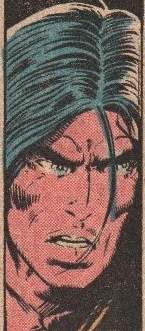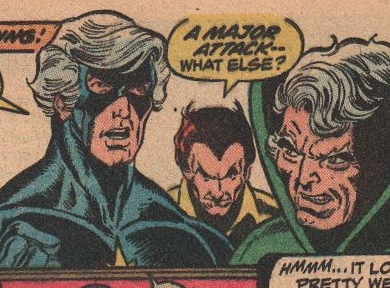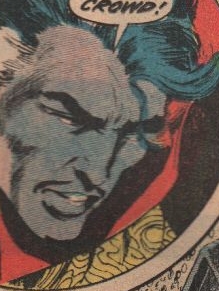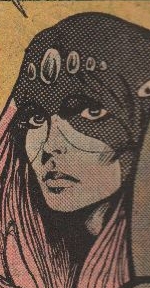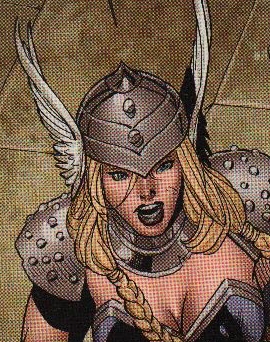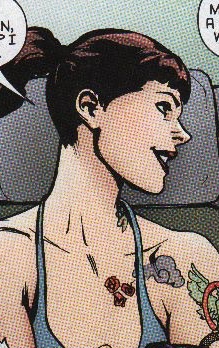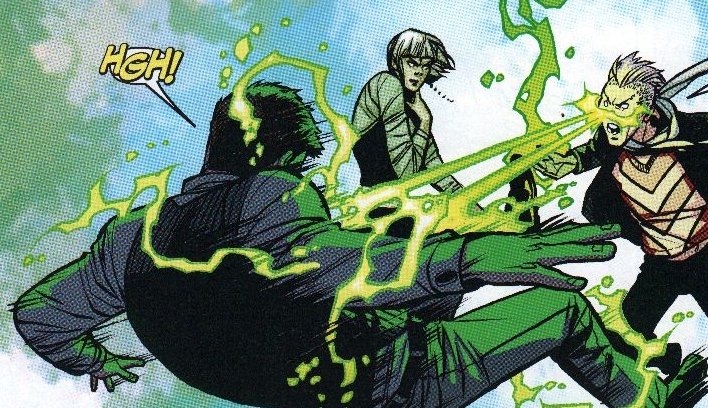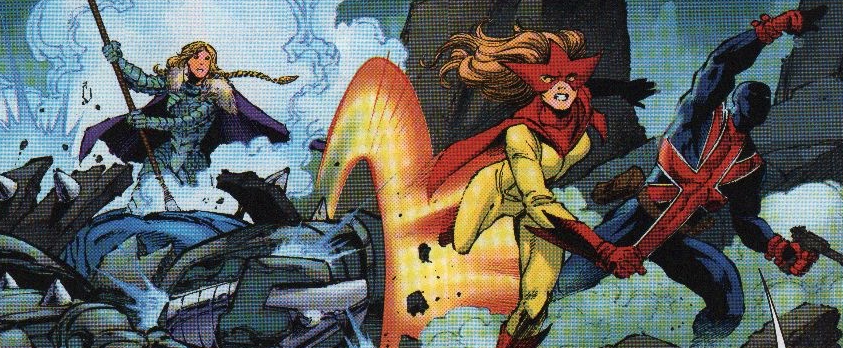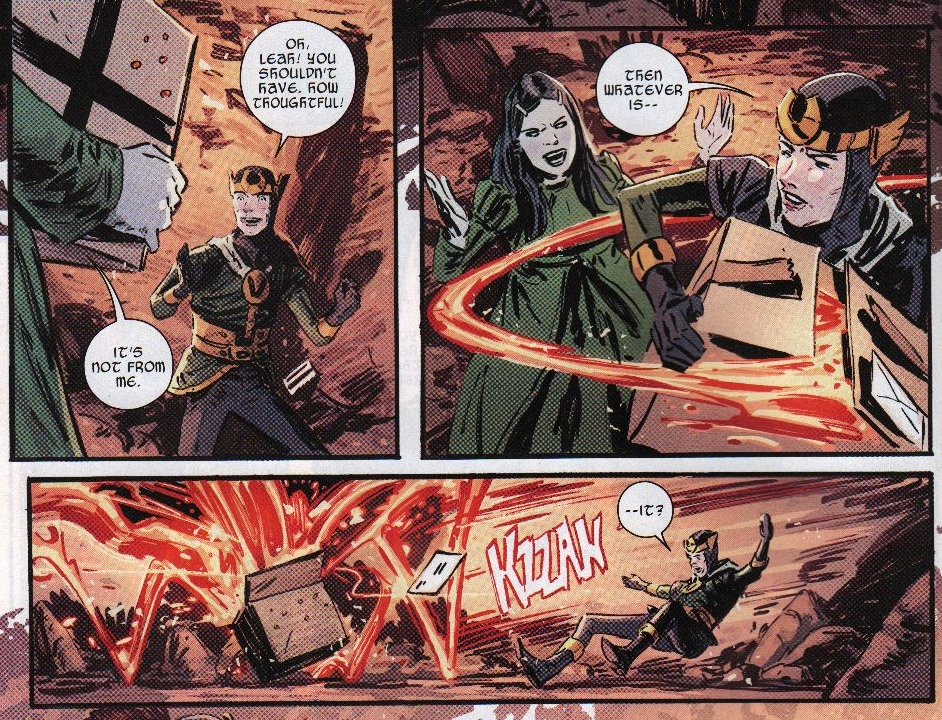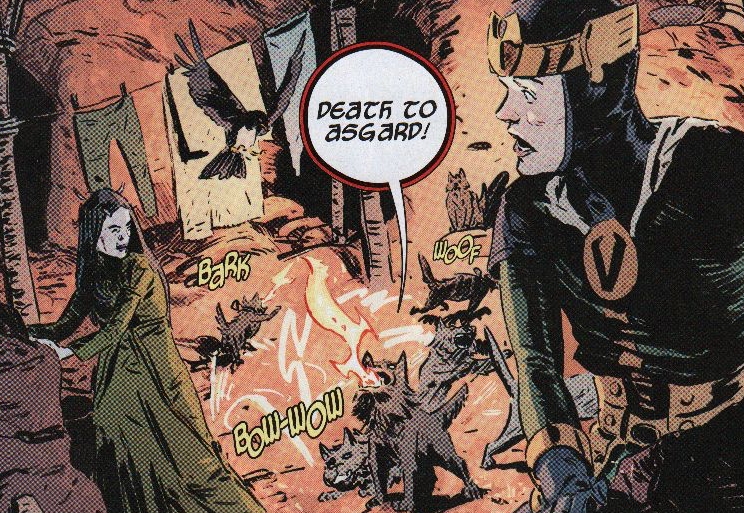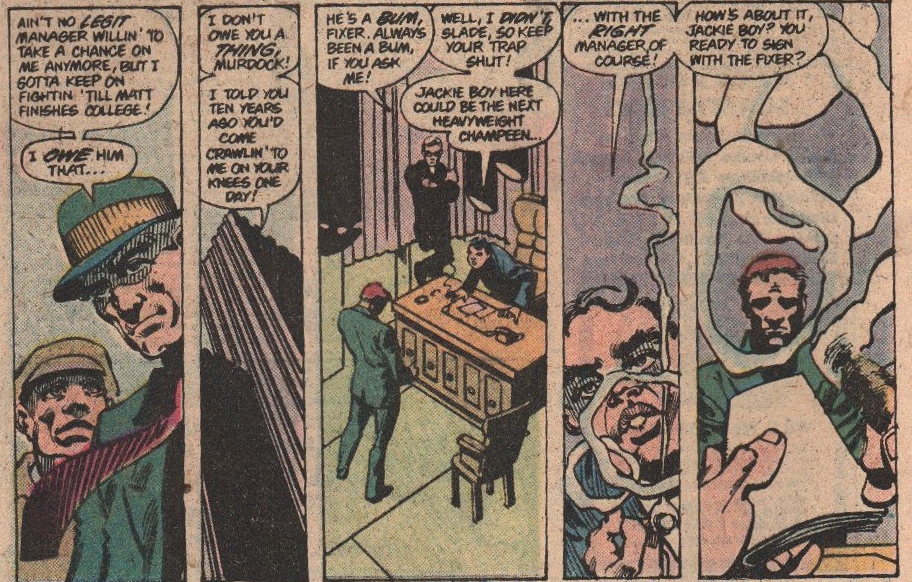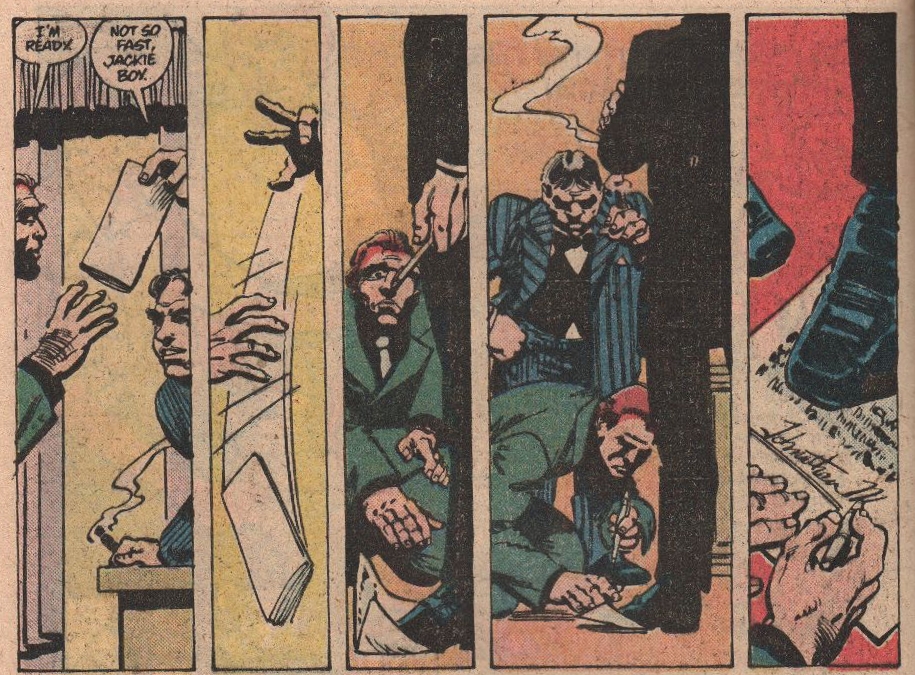Other, related stories:
Comics and social relevance
Howard the Duck
A few comics that really bugged me
Cerebus and sentimentality
Statistics
A review of the TV show Smallville (In which I look at death in the comic books)
Technical problem
Love, sex and romance
Desert Peach and literary characters
Mary Marvel and economic systems
Valkyrie and feminism
Turning a paper page into a virtual one
Update on sex in comics
Mars - Not a brilliant work, but an interesting one
A funny, but it needs explaining
A really sweet, romantic meeting after an absence and some adventures
An update on Mary Jane
All of the images I use in these
visual essays are copywrited to whatever publication I got them out of.
I produced none of them and have no rights to any of them.
Why I like comics
I'm currently taking all of my pre-1980 comic books, scanning them and
consolidating the resulting JPGs into the CBE format. After creating
about 30
such digital comic books, I've been giving some thought as to why I
collected them in the first place. Money was never a great motivation.
I liked the comic book artist who claimed she read her comics while
taking her baths because she just wasn't all that concerned about the
money she'd get from selling off her back issues. She was more
interested in the reading experience than in the potential future
money.
Does one automatically get money for old comics? According to Comic Price Guide, a mint
condition Swamp Thing #19 sells for only $6. A Swamp Thing #20,
published only one month later, goes for $25. Why is that? Different
writer. That was the month Alan Moore took over the writing on Swampy
and he wrote some really terrifically awesome stuff. So no, for a comic
to
just be old doesn't mean that it's automatically valuable.
As to what makes for a good comic, I can't add a whole lot to Scott
McCloud's Understanding
Comics. McCloud was the writer/artist for Zot!, a
Japanese manga-inspired superhero series. I also read The Comics Journal from the late 1970s
until the late 1980s and still pick up an issue now and then.
Do I like the handsome guys
and the beautiful gals?
Well, of course I do. I think someone defined the main appeal of
watching movies and TV shows is that you get to see people who look
better than you do dealing with problems that are nevertheless very
similar to yours.
Do I like it when the problems of the chracters I'm reading about are really similar to mine? Actually,
no. I prefer it when there's a good deal of distance between the
problems they deal with and the problems that I deal with. In the TV
series Vampire
Diaries, they feature a blond vampire who's going out with a Latino
werewolf and where the younger brother of the heroine has to choose
between his former girlfriend who's now a ghost and the current
girlfriend who's a witch. Cool stuff! Now, in Bridesmaids, the
heroine of the movie has to deal with a serious lack of money. As I
have that very same problem, this was not a very pleasant film to
watch. It hit too close to home to be amusing.
I really enjoy it when the comic heroes and heroines deal with their
problems in an understandably human way, but of course the characters I
read about can use things like zap rays and super-strength and the
ability to fly, so that again, establishes a good deal of distance
between what they deal with and what I deal with during my much more
ordinary life.
Do I like a good fight scene?
Oh, heck yeah! That's a big part of the appeal of comics. But there's a
lot of stuff I read and enjoy where fights don't occur for pages at a
time and somtimes not even in that particular issue, so that's not a
major draw for me, either.
No, the part of comics I really enjoy is the story-telling, the getting
the story across in a combination of both words and pictures. In this
scene (Journey Into Mystery 632), we can see that Loki is a very
youthful and impatient sort and that he's shocked and taken aback when
his actions don't yield the expected results.
Neither the words nor the pictures tell the full story by themselves.
If you just read the words, you wouldn't get Loki's brash impatience,
nor Leah's aggravated annoyance. Loki's feeling of "OMG! What have I
done?" is shown by his shocked expression and Leah's fear of the
fire-breathing dog is shown by her turning away from it.
Matt (Daredevil) Murdock's father (Daredevil 164) has to get back into
the boxing ring. We see his resigned determination, his sagging
shoulders when he asks for his old job back, the annoying and obnoxious
cigar smoke being breathed directly into his face and Jack's look of
resignation amid still more cigar smoke.
The Fixer really grinds it in and humiliates Jack as he accepts Jack's
re-registration. Words aren't even necessary for us to see how
depressed Jack is and how little choice he feels he has in the matter.
This, to me, is the really main draw of comics, the telling of a story
with both words and pictures working together. Neither of them works by
themselves. Yeah, it's really cool when the art is highly realistic,
but for it to be of a high caliber, the realism and even the dynamism
of the drawing isn't the quality that really draws me to it. It's the
story-telling, the narrative flow, how the writing/drawing team get
their ideas across, how they get across the action and the details of
the story to the reader that I really like.
Here's a story fragment from 2013, Fairest 9 (A spin-off of Fables)
that's probably possible to do in other mediums, but it's hard to see
how a reader could so easily keep track of the two elements in any
other format.
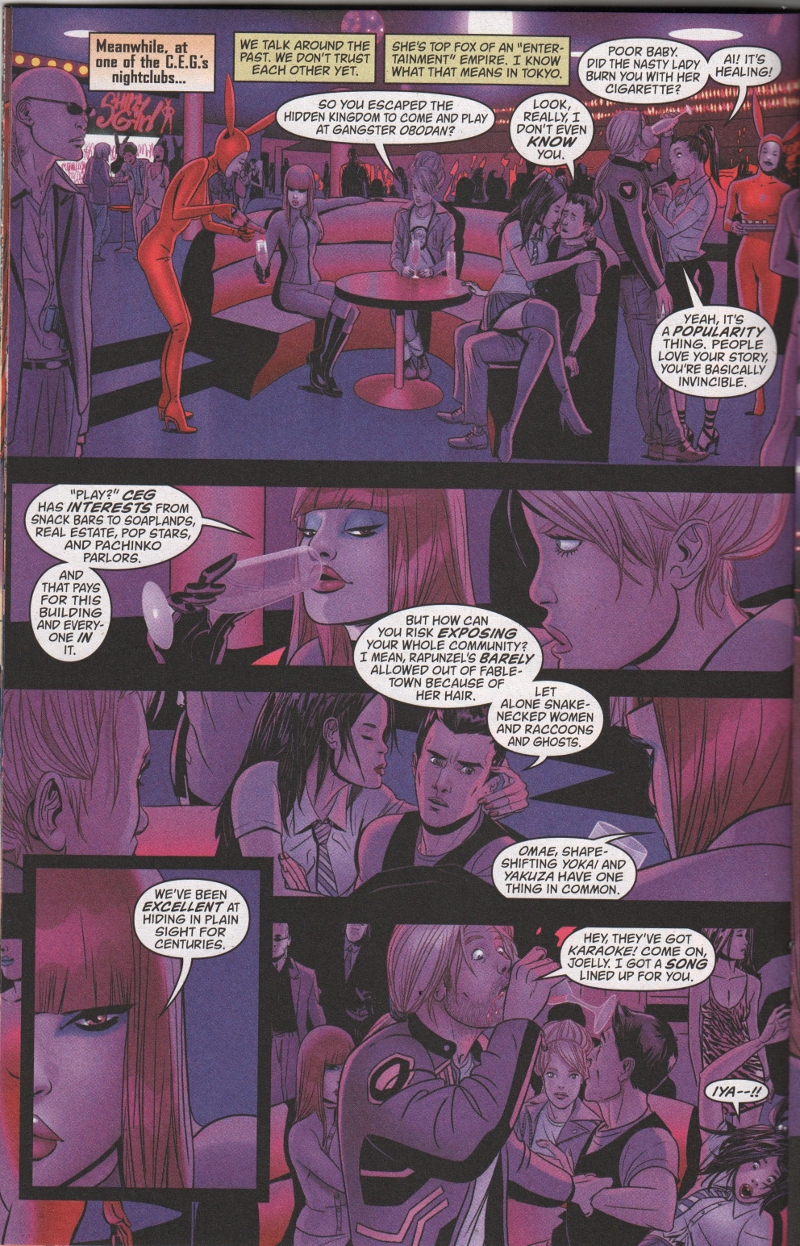
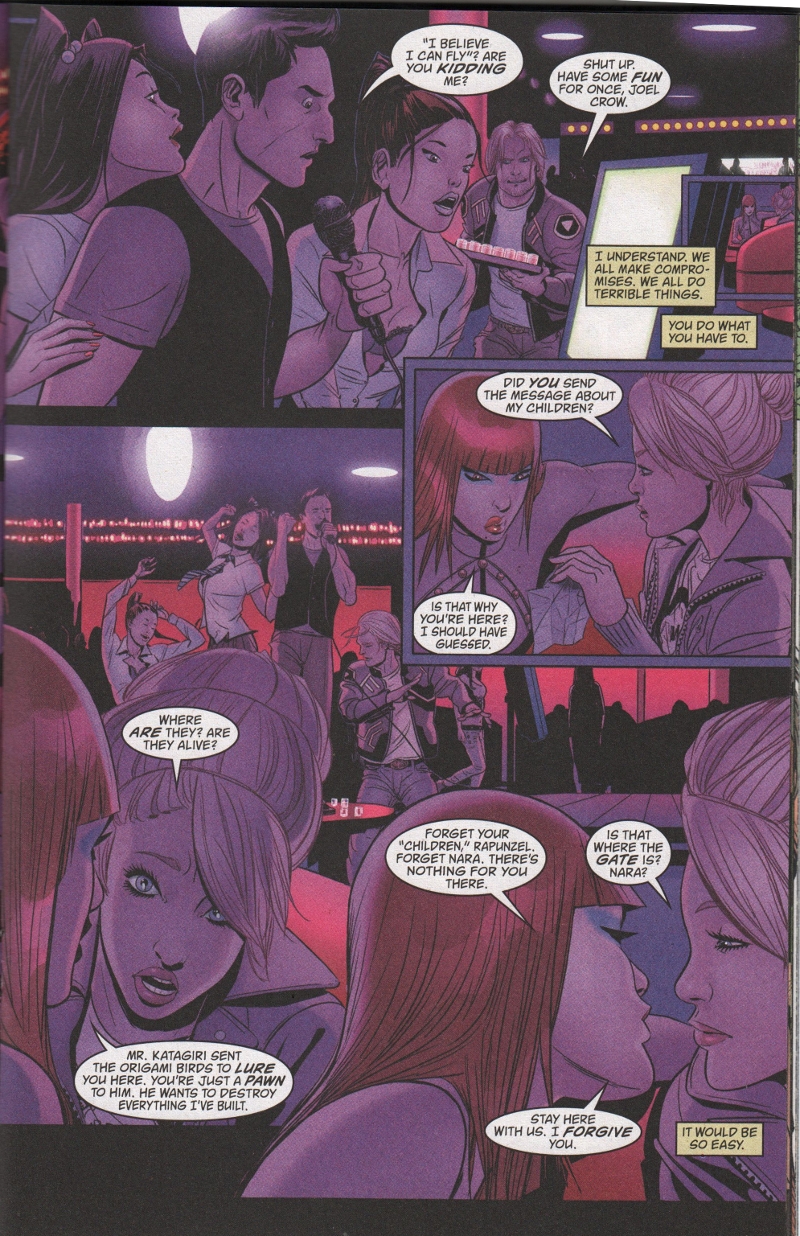
There are two conversations here, the two women, Nara and Rapunzel
carry on a very serious dialogue that's central to the plot of the
comic. The two guys, Jack and Joel, do yer guys-in-a-bar thing with
some attractive females who work there. The two conversations begin
with Joel being part of the women's conversation, then the guys run off
and do their own thing while the women continue with their more serious
conversation. We follow each one without losing track of either.
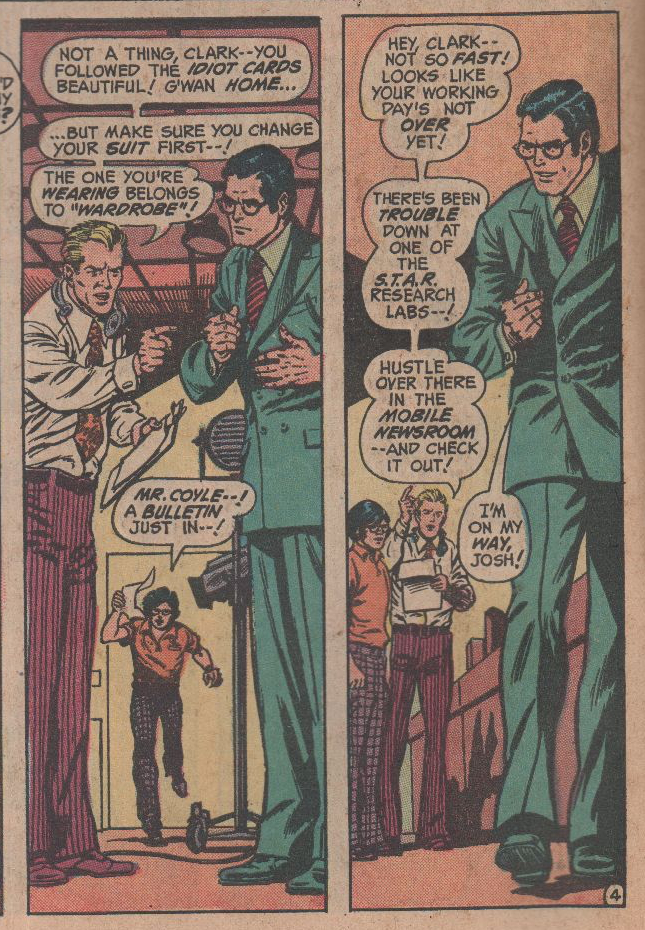
This is a quickie sequence I've always liked. It's from Superman 258 in 1972. After Clark Kent asks his director how his news-reading went, his director says fine and instructs him to go home. I like the gesture as Clark listens attentively, fully intending to do exactly as he's told. His gesture then immediately turns into a grin and a bit of a swagger as he learns that he, and very likely Superman, is needed after all. Sure enough, Superman was indeed required to handle the problem.
Does this combination ever approach true, awesome, capital-A Art? Hmm,
well, if it did, I'd say the following pages certainly qualify. Here's the
context of a page from
Wonder Woman (Issue 97 in 1995):
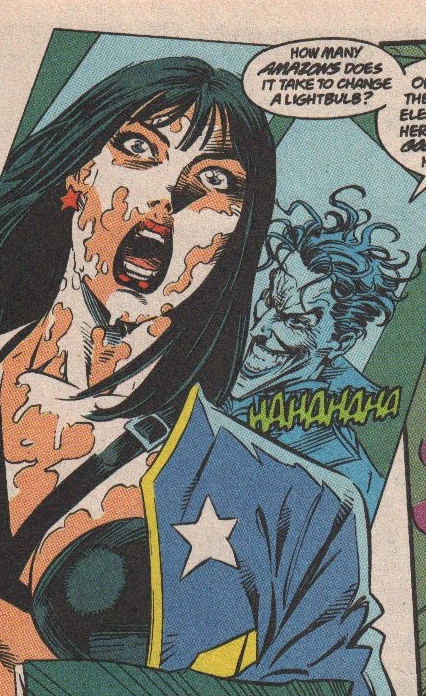
Diana has been sprayed with some white stuff
by the Joker and thereby paralyzed. Yes, that's a different costume
than her usual red and blue one.
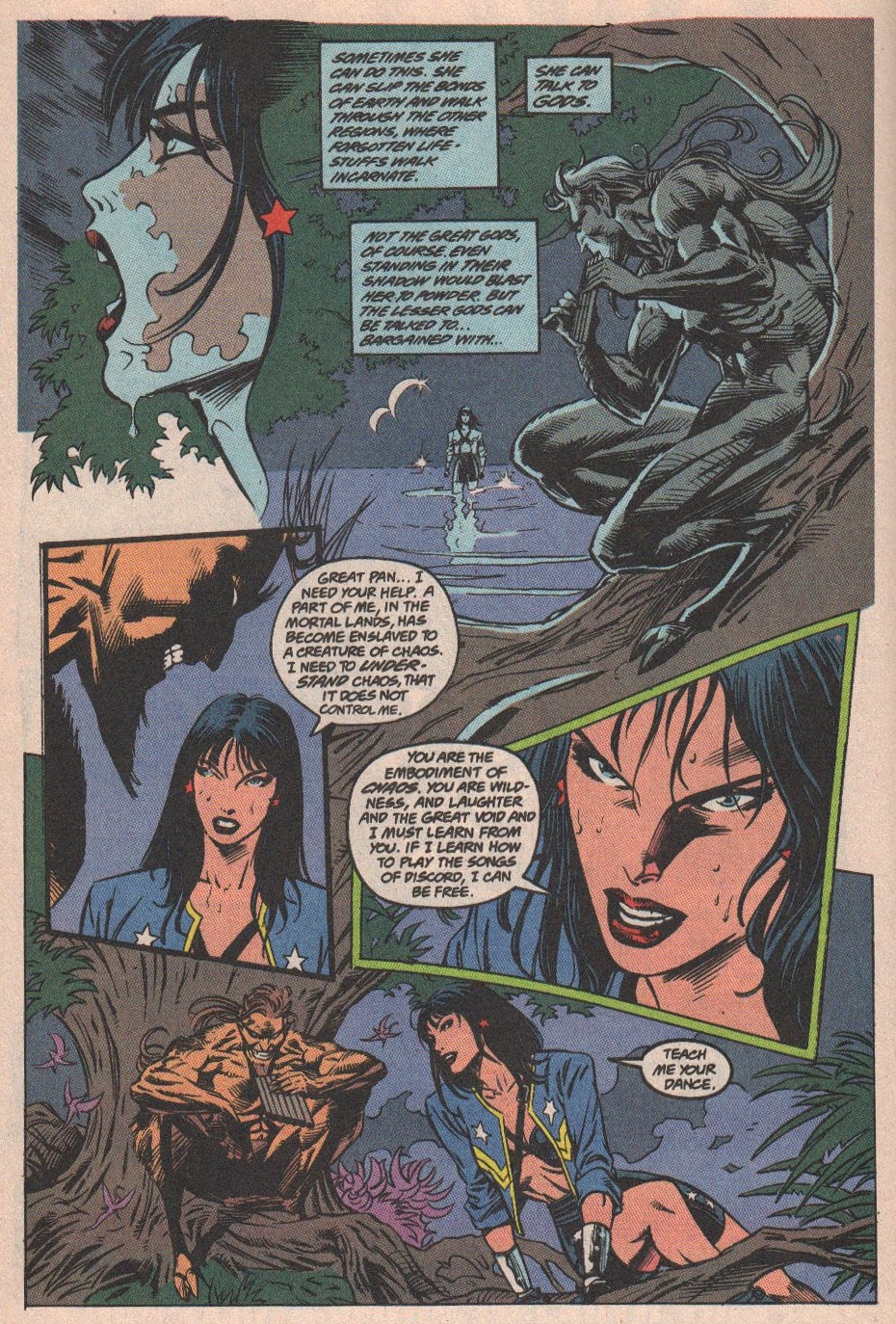
The writer explains that Diana, being a creature of myth and legend
who's closely linked to the Greek gods and goddesses isn't bound by the
same rules that would keep everyone else frozen and immobile. After the
Joker gets smacked around a bit by the revived Diana:

I've always particularly liked this page (Strange Tales 180 in 1975),
too. Adam Warlock flies above the city, on his way to meet The
Matriarch.
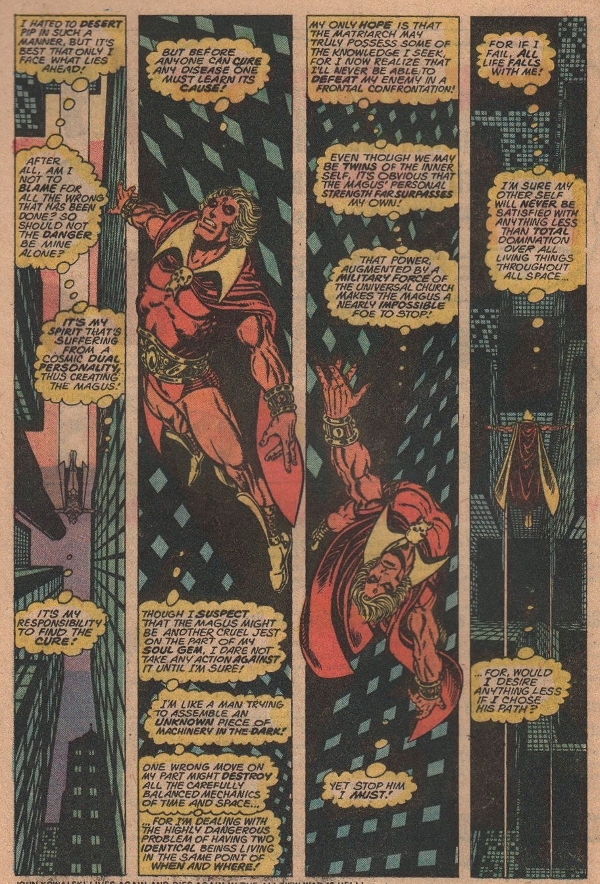
This is definitely one of the better fight pages I've seen. From X-Men 109 in 1978.
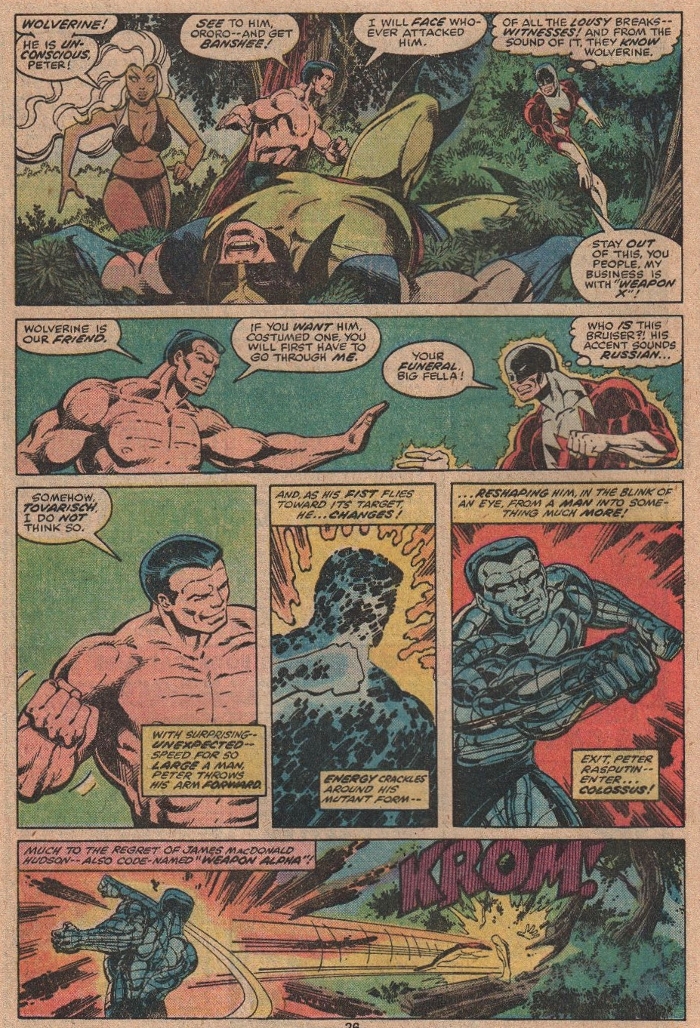
And the answer to that burning question "Just how quickly does Peter
Rasputin change into Colossus?" is, well, pretty darn quickly.
Here's an example a few pages earlier of the artist's fight scenes.
Ya
gotta feel for Wolverine here as the artist demonstrates just how the
"costumed one" throws his entire weight behind his punch.
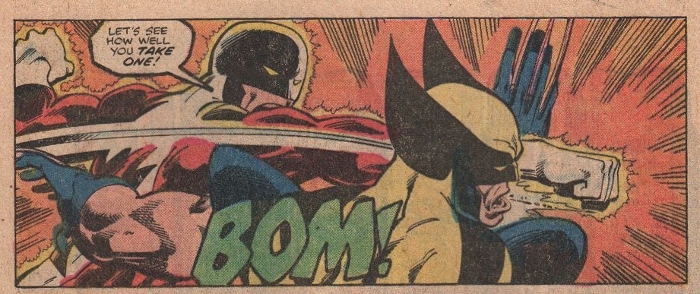
Here's another X-Men page I've always liked.
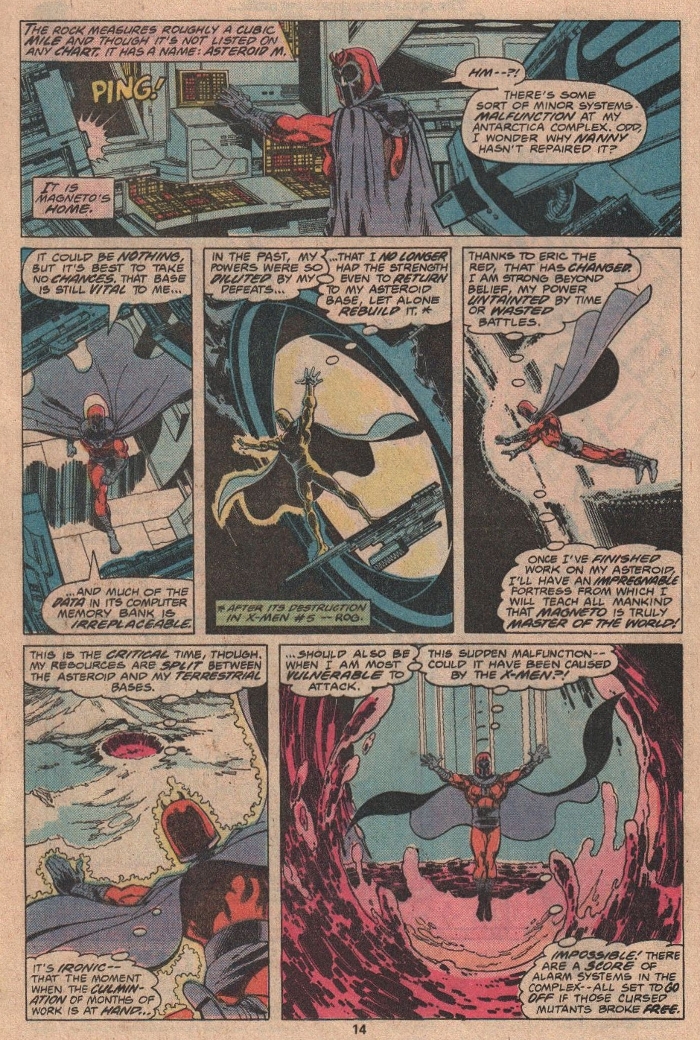
Magneto travels, in a very short time, from his satellite all the way
to the molten entrance to his other base where the X-Men are
imprisoned.
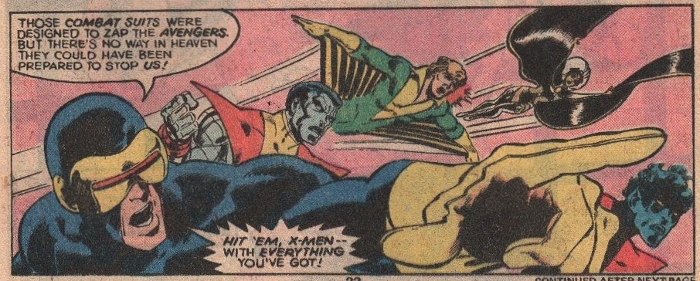
And this is a pretty classic "Charge!" picture.

Whoa-ho! Like cosmic and trippy, man! From Killraven in 1975.
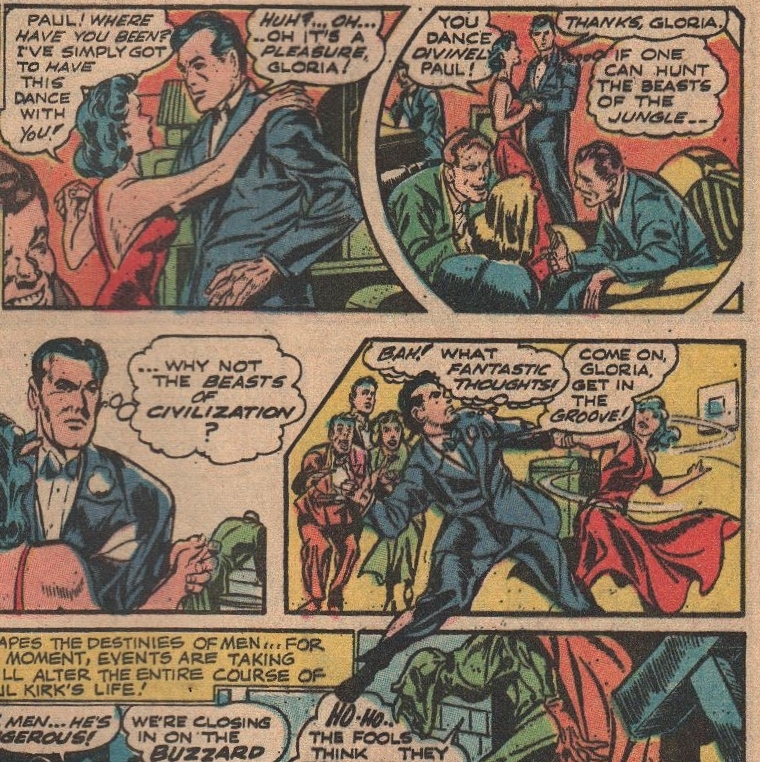
Some dancing from the 1940s.
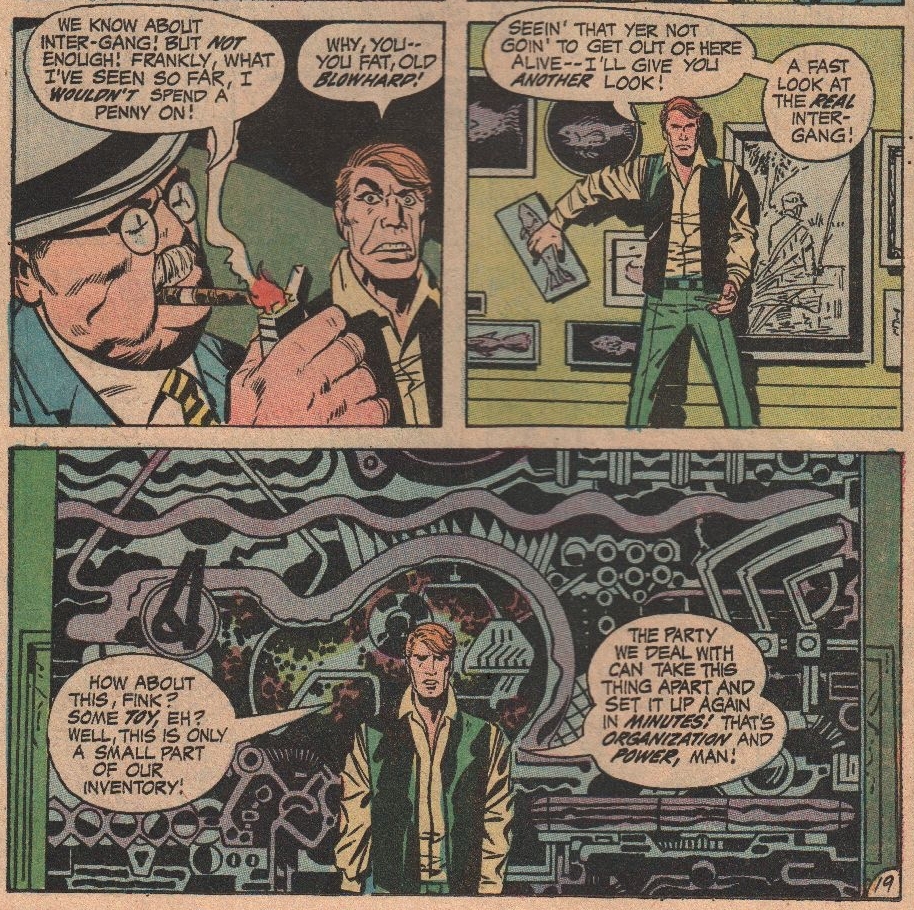
Jack Kirby does awesome machinery! From New Gods 4 in 1971.
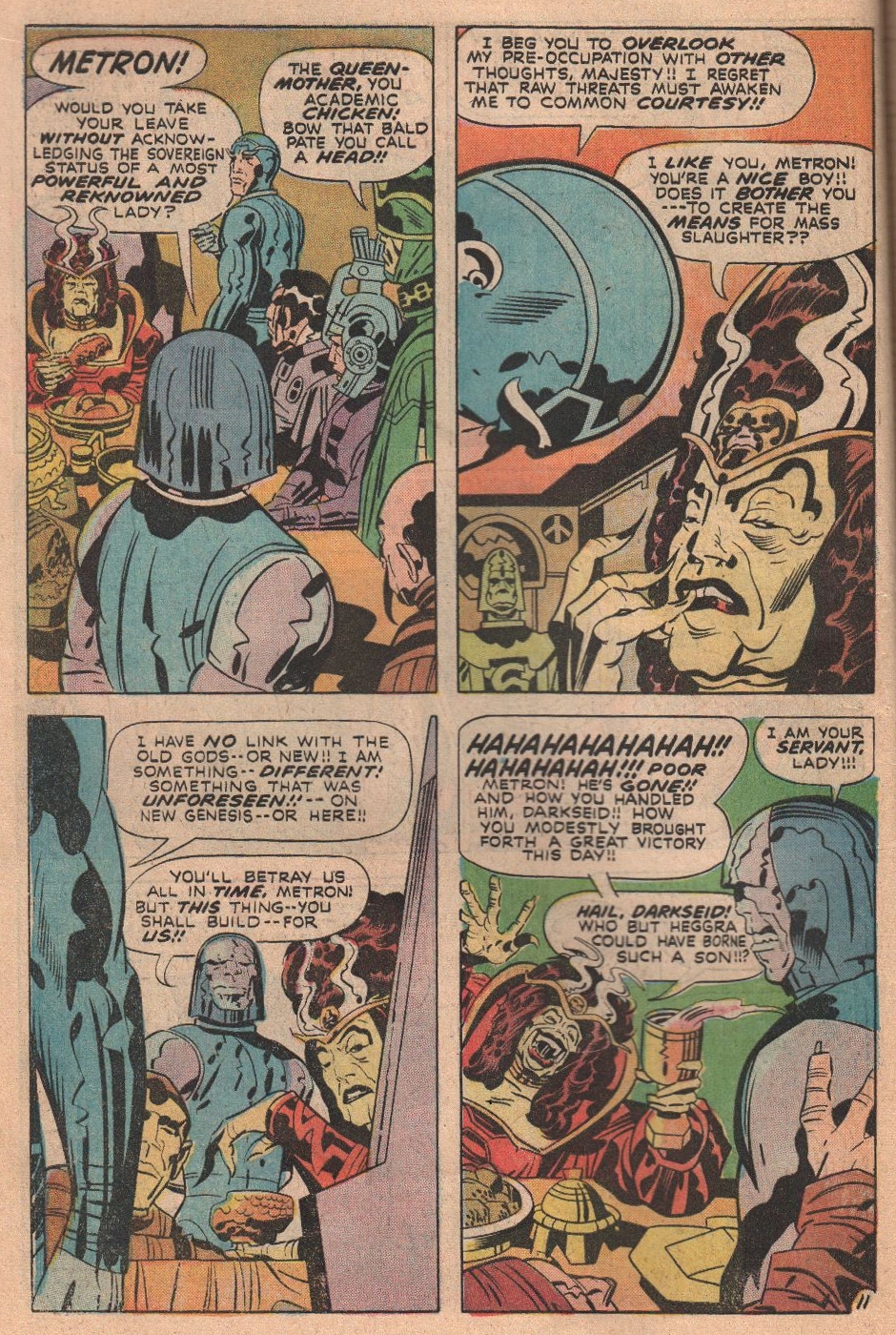
This page is really interesting for Darkseid's body language, posture
and attitude. From New Gods 7 (1972), Darkseid scolds Metron and
appears powerful and in command while being unthreatening.
